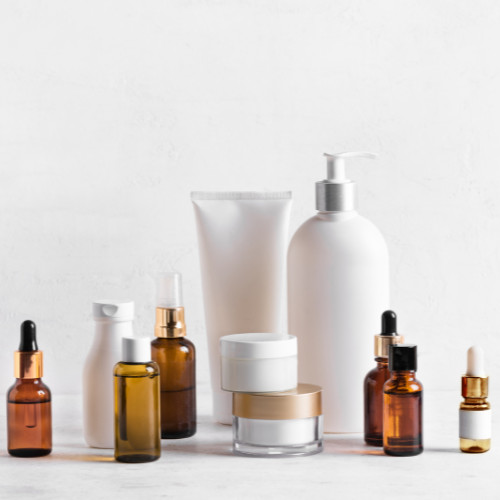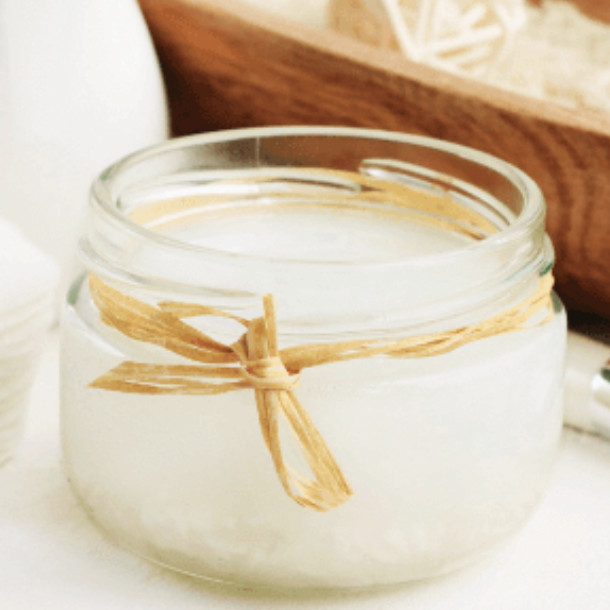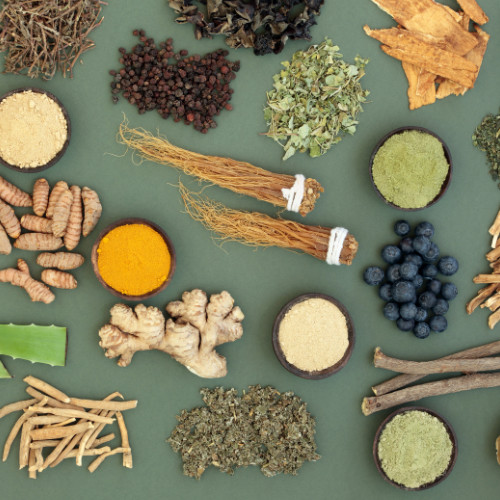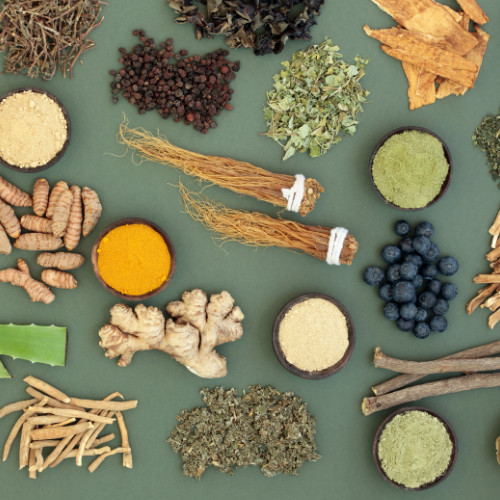 Stress is a total jerk face.
Stress is a total jerk face.Like we all learned in middle school health class, we need a certain amount of stress to keep us motivated, moving through life and doing the thing. But, severe or chronic stress turns us into an opossum.
Quite literally, when the body is met with high levels of stress or stress that seemingly has no end, the nervous system goes into fight-or-flight - and can sometimes even get stuck there and just shut the body down.
I experienced this first-hand a few times in my life, the most recent being this past year, when, one day, my digestive system decided to peace out. Like, for days. It did nothing. I couldn't eat, I struggled to stay awake and even do simple tasks. I could barely form a thought or remember a thing. I was not doing well managing the list of stressors in my life and how fast they were coming at me.
I was navigating a brand new job, new home, new town, being a newly single mom without sufficient resources, a shift in my support network and a close family member with chronic and life-threatening health issues. I didn't have time to take a breath.
Because I wouldn't/couldn't slow down and prioritize my health, my body did it for me.
Enter, adaptogens. They were one of my saving graces - along with other support modalities - to get my body back on track.
What Are Adaptogens?
Adaptogens are a class of herbs and mushrooms that have been used for centuries in traditional medicine systems like Ayurveda and Traditional Chinese Medicine (TCM). What sets them apart is their unique ability to help our bodies adapt to various stressors, whether they are physical, emotional, or environmental. These stressors could be anything from a demanding work schedule to the challenges of this modern world.
How Do Adaptogens Work?
Adaptogens work by interacting with our body's stress response system, which includes the hypothalamic-pituitary-adrenal (HPA) axis and the sympathetic nervous system. These herbs and mushrooms help regulate cortisol levels, a hormone produced in response to stress, and modulate our body's overall stress response. They don't eliminate stress but rather enable the body to handle it more efficiently, rather than like an opossum.
Common Adaptogenic Herbs and Mushrooms:
Ashwagandha: This herb is a staple in Ayurvedic medicine. It's known for its potential to reduce stress and anxiety, improve sleep quality, and support cognitive function.
Rhodiola Rosea: Hailing from the cold regions of Europe and Asia, Rhodiola is believed to enhance energy levels, focus, and physical endurance. It's often used by those looking to combat mental fatigue.
Reishi Mushroom: Reishi is considered the "queen of mushrooms." It's revered for its potential to boost the immune system, improve sleep, and promote relaxation.
Lion's Mane Mushroom: Known for its potential cognitive benefits, Lion's Mane is believed to support memory, focus, and overall brain health.
Holy Basil (Tulsi): In Ayurveda, Holy Basil is revered as an "elixir of life." It's used to reduce stress, promote mental clarity, and support respiratory health. This is my favorite adaptogen - it resonates with my body like peas and carrots.
Schisandra Berry: Used in TCM, Schisandra is thought to enhance endurance, improve mental performance, and support liver health.
My trusted source for purchasing herbs, mushrooms and tinctures is Mountain Rose Herbs, but you can also usually find them at your local natural foods store.
Exploring Adaptogens
Incorporating adaptogens into your routine isn't a one-size-fits-all approach. It's about finding the herbs or mushrooms that resonate with your body and lifestyle. Here's how you can start:
Learn & Explore: Learn about and explore different adaptogens and their potential benefits. If you're on medication or have health concerns, be sure to check with your health care professional before using them. Try adaptogens one at a time as a tincture, infusion or a decoction.
Start Slowly: Incorporate one adaptogen at a time. Begin with a small amount and observe how your body responds. Try them in different forms, also - as a tincture, infusion or a decoction (if appropriate). Make notes of how each one
Consistency Matters: Adaptogens often have cumulative effects. Consistent, long-term use may yield better results.
Integrate Mindfulness: Alongside adaptogens, practice mindfulness techniques like meditation, deep breathing, walking and yoga to level up the stress management.
Prioritize Self-Care: Adaptogens work best when combined with a healthy lifestyle. Ensure you're getting adequate sleep, a nourishing diet, and regular physical activity.
The world asks a lot of us. Hustle culture is alive and flourishing, on top of just regular life stuff. And we are given the mixed message of making time for self-care, while also expecting to go, go, go and do, do, do.
Let's all pinkie promise to slow TF down, prioritize ourselves and give hustle culture the finger. Adaptogenic herbs and mushrooms offer a gentle and natural way to support your journey towards balance, resilience, and overall well-being. Stress will always be there, but adaptogens are a great ally to help us face it with more strength and calm.
This post may contain affiliate links that support the creation of the content of this blog. If you use these links to buy something, I may earn a commission, at no additional cost to you. Thank you.
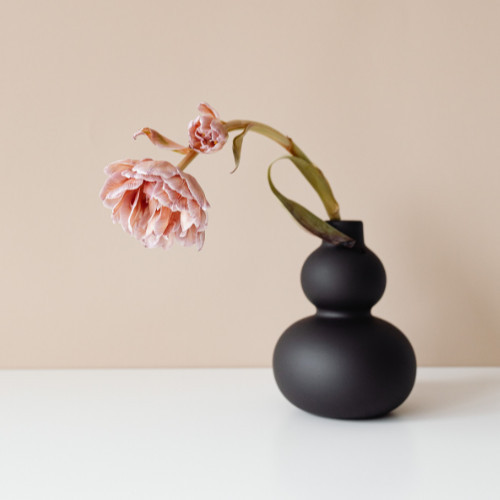
Hey, beautiful! We're about to embark on a journey where I peel back the layers and explore the fascinating connection between stress and your skin health.
Now, before you start furrowing your brows, fret not! I've got some uplifting insights and practical solutions to ensure your skin stays glowing, no matter what stress throws your way. So, let's dive right in and uncover the hidden secrets of stress and its impact on your skin.
1. Stress: The Uninvited Guest
Picture this: you're juggling a thousand things, your to-do list is a mile long, and you're feeling overwhelmed. Enter stress, the uninvited guest that sneaks in without warning. We know that stress isn't good for our body and overall health, but did you know that stress can particularly be a jerk to your skin? When stress hormones, like cortisol, go into overdrive, they can disrupt the delicate balance of your skin's natural processes, leading to a variety of unwelcome skin issues.
2. Hello, Breakouts! Goodbye, Clear Skin
Stress can often be a trigger for acne breakouts, leaving you feeling like you're reliving your teenage years all over again. Why does this happen? Well, stress increases inflammation in the body, promotes the production of excess oil and creates the perfect scenario for acne - which is an inflammatory condition.
3. Wrinkles: The Stress Souvenirs
If you're concerned about those fine lines and wrinkles, stress might be partly to blame. Chronic stress can accelerate the aging process by depleting collagen and elastin, the proteins responsible for maintaining your skin's youthful elasticity.
4. The Redness Rebellion
Have you ever noticed your skin turning red and blotchy during stressful moments? This is stress-induced inflammation. It can happen to anyone, but those with fair skin and skin that easily flushes are especially susceptible. This inflammation can aggravate existing inflammatory skin conditions like acne, eczema, psoriasis, and rosacea, making them even more aggravated and uncomfortable. But, there are ways to calm the redness and restore your skin's equilibrium.
5. Stress-Busters for Your Skin:
- Work It Out: Shake off stress with exercise and regular body movement. Exercise can release endorphins, the feel-good hormones that help counteract the negative effects of stress on your skin.
- Beauty Sleep: Get your beauty sleep, as it's the ultimate secret weapon against stress. Aim for those magical 7-8 hours (or more if your body needs it) of restorative slumber each night, and watch your skin thank you with a fresh and radiant glow. Our skin repairs itself from the damage of the day while we sleep.
- Skincare Routine: Soothe stressed skin with the right approach. Treat your skin to gentle cleansers and nourishing serums and moisturizers with calming ingredients like green tea and niacinamide, that help to balance and refresh stressed skin tissues. If you need recommendations for your unique skin, book a Skin + Self Session with me.
- Mindfulness Magic: Practice mindfulness techniques such as meditation, deep breathing, or yoga to calm your mind and reduce stress levels. Remember, a relaxed mind equals happy skin.
Stress might try to sabotage your skin's well-being, but armed with these stress-busting tips, you can give it the finger and maintain a healthy, glowing complexion. Remember, stress is temporary and your skin has the regenerative power to bounce back with a little extra love and care.
This post may contain affiliate links that support the creation of the content of this blog. If you use these links to buy something, I may earn a commission, at no additional cost to you. Thank you.



